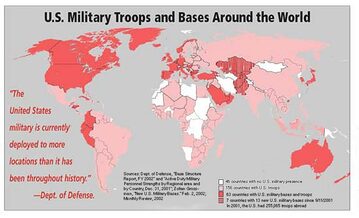After a brief hiatus from teaching my militarization course, I'm back at it and absolutely loving it! When I moved to UNC about 4 years ago I developed a course based closely on my own area of research, U.S. Latina/o cultural responses to U.S. military intervention in the 20th and 21st centuries. I adopted this course from one that existed, entitled "Gender and Global Change" and added a more specific subtitle so it now has the slightly cumbersome name of "WMST 281: Gender and Global Change: Militarization and Transnational Latina/o Literature." I just call it "my militarization course." 
In the course, we read a variety of U.S.Latina/o (mostly, Latina) texts that engage with U.S.-backed war and military intervention, primarily in Central America and the middle East. I actually haven't taught many of the texts that I study in my book, opting for more recent texts and fictional works that take up the U.S. invasion and occupation of Iraq and Afghanistan (War Echoes looks at the 1991 and 2003 Iraq invasions through soldiers's memoirs).
We began the semester a few weeks ago by reading two short pieces by Cynthia Enloe that talk about the gendered implications of intervention and militarization and encourage us to learn how to ask "feminist questions" about things such as international relations, national security, and national defense. We had a really robust discussion about the norms of masculinity and unrecognized (and encouraged) male privilege that so often accompany policies and directives considered necessary for "national security." We talked about, for example, what it means to be "tough" on a particular issue and how such posturing is encouraged of politicians regardless of their gender.
My students turned in their first round of response papers, which asked them to comment on Enloe's pieces and apply them to Demetria Martínez's poem "Birthday." I was blown away by their responses - the students were very tuned in to militarization and military pressures around them - from video games, to campus ROTC programs, to the ties between the food service industry and military bases abroad. One student pointed out that the military's investment in a certain type of gendered politics is revealed in its insurance plans that refuse to cover abortion for female members. Another introduced me to a new word - extractivst. (http://ecuadornoticias.org/index.php/nacionales/destacados/473-entre-el-yasuni-y-el-extractivismo-del-siglo-21)
I am so excited to have such an engaged, diverse, thoughtful group of students who have a sound basis in and commitment to feminist inquiry and transnational politics and social movements. I look forward to teaching and learning with them in the coming semester as we continue to discuss pertinent issues through Latina/o cultural production.
Next week we''ll begin a text that has been a staple in the course, Graciela Limón's Erased Faces. Published in 2001, this book is about a young Afro-Chicana from L.A. who travels to Chiapas in the early 90s and joins the Zapatista uprising. She also falls in love with a fellow guerrillera. Students respond very well to the novel, which weaves in several layered stories about resistance to colonialism, exploitation and racism by the indigenous inhabitants of the Américas as well as intra-ethnic racism and abuse. They also appreciate the queer love story and learning about the Zapatistas. Since the course emphasizes U.S. intervention and militarism, we learn about U.S. support for the Mexican military's harassment and occupation of Zapatista-controlled communities as well as the effects of NAFTA, primarily through the Big Noise Films documentary Zapatista. While I have taught this novel frequently, I tend to find a new aspect to appreciate every time I read it and I look forward to having and sharing that experience with my students in the coming weeks.
Review of Erased Faces: http://articles.latimes.com/2001/nov/26/news/cl-8399
Demetria Martínez: http://www.demetriamartinez.com/